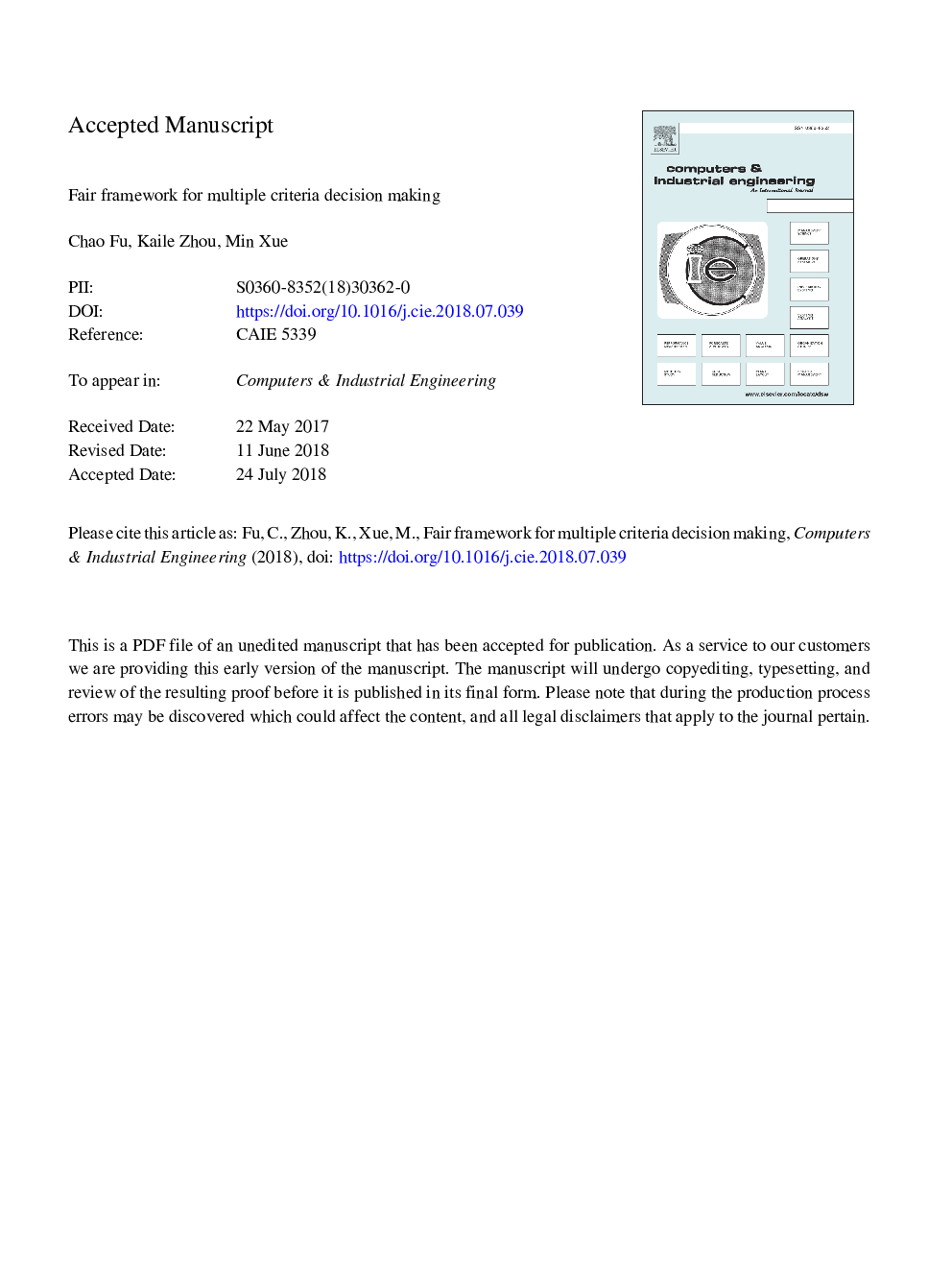| Article ID | Journal | Published Year | Pages | File Type |
|---|---|---|---|---|
| 7540705 | Computers & Industrial Engineering | 2018 | 42 Pages |
Abstract
As the determination of criteria weights is important for multiple criteria decision making, a number of attempts have been made to assign weights to criteria. However, whether criterion weight assignment is fair to each criterion and to each alternative is rarely taken into account. To address this issue, in this paper, we propose a fair framework in the context of the evidential reasoning approach, which is a type of multiple criteria utility function method. In the fair framework, two strategies are prepared for a decision maker to choose, which are the superior strategy and the inferior strategy. To achieve the objective in line with the selected strategy, two levels of fairness including the fairness among criteria and the fairness among alternatives are defined based on the performances of alternatives on each criterion. By following the two levels of fairness defined, two optimization models are constructed successively to generate possible sets of fair criterion weights. With a view to making all possible sets of fair criterion weights treated in generating a solution, they are incorporated into another optimization model constructed to generate the minimum and maximum expected utilities of each alternative, by which the solution is made with a decision rule preferred by the decision maker. A supplier evaluation problem is analyzed to demonstrate the applicability and validity of the fair framework.
Related Topics
Physical Sciences and Engineering
Engineering
Industrial and Manufacturing Engineering
Authors
Chao Fu, Kaile Zhou, Min Xue,
